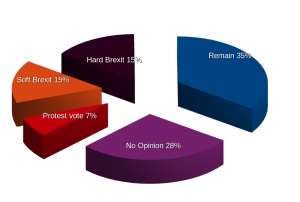Entering the common Electricity & Energy Market is a slow process taking many steps; for instance, it took two decades to agree the European Standard Colour Code for Electricity Wiring. We are now in mid-leap for another step and may well have to change direction in mid-air. The step I am talking about is agreeing the domestic supply voltage.
The Low Voltage Directive, 2014/35/EU, stipulated that the supply should be 230 Volts ±6%. For countries that had previously been on 220 Volts, the transition was easy: legacy equipment had its life expectancy shortened, and replacement products would be better performing. The consumer did not notice the change and everyone wins. But for us, going from 240 down to 230 Volts, it’s not been easy. If we change, life expectancy of legacy products goes up, but performance goes down. If we don’t change, life expectancy of new products will go down. The EU passed Standard EN50160 which allows our supply Voltage to be 230 +10%/-6%. This does not alter the technical reality at all, it just allows European Appliance Manufacturers to sell into the UK. We still have a 240 Volt supply.
Now what happens when you go to the shops to buy “white goods” or Electricity Appliances? The appliance is probably labelled 220-240 Volts, which is a lie, as it is most likely designed to operate at 230 Volts. You either have to shop around for a product specifically designed for the UK market, which is shrinking in relative terms and probably only satisfied by the more expensive high-end products. Or you have to accept market reality, with the caveat that the product will burn-out sooner than expected.
Keith Taylor, our Green MEP, is acutely aware of this problem and suggests complaining to one’s Energy Supplier, the Energy Ombudsman or the Citizens Advice Bureau whenever an appliance bought since 2014 burns-out. (Though I somehow doubt that any of them could be persuaded to take the matter seriously)
This is not the only problem. Energy Companies force, what is often significantly more than 240 Volts, into an increasing number of devices designed to take 230 Volts they need more Capacity. Increased Capacity means more Power Stations; and the difference between accepting the Low Voltage Directive (without the caveats provided by the Standard) and not; amounts to several Power Stations at least the size of Hinkley Point. In other words, if we switched to 230 Volts along with the rest of Europe, we would not need to invest in Hinkley Point.
Power Stations need raw fuel, and Nuclear Power Stations need fissile material. Just one cold winter of fuel starvation and the politics will quickly turn very nasty. (Just think of the real story behind Iraq, Afghanistan and Pearl Harbour). The EU is there to ensure equitable access to raw fuel for all members; and the importance of this job should not be under-estimated.
Nuclear Safety is another issue. The greatest threat to our Nuclear Safety here in Kent is the giant old and run-down Nuclear Power Station at Dunkirk. Power Stations like this typically have an incident somewhere in the world once every three years, and the last ones at Dunkirk where in 2006, 2007 & 2009. – How long will it be before we have a Chernobyl or Fukushima on our doorstep? As an EU member, we are entitled to over-site of the safety at here; but if we leaves, what guarantees do we have?
The question is. If we leave the EU, will we continue with a switch to 230 Volts or will we stay as we are? Will the EU rescind EN50160 in order to improve standards, but making EU products less suitable for our market? Will manufacturers step up to fill our relative declining market? And, will we remain a member of EURATOM? (Theresa May wants us to leave).




